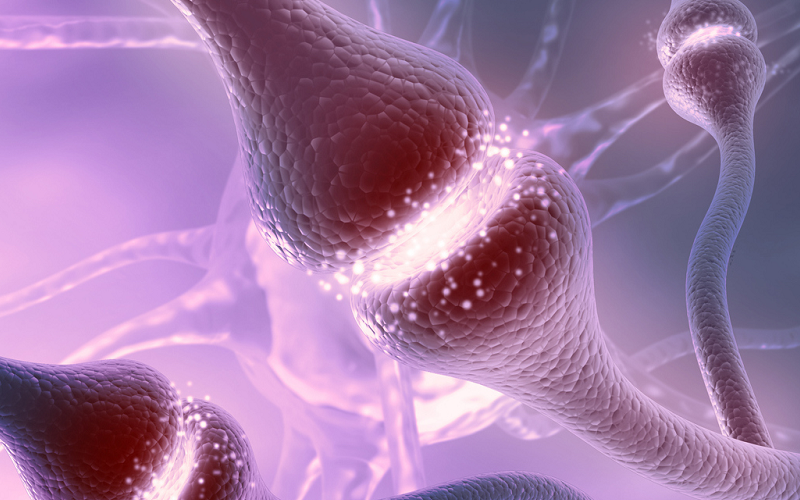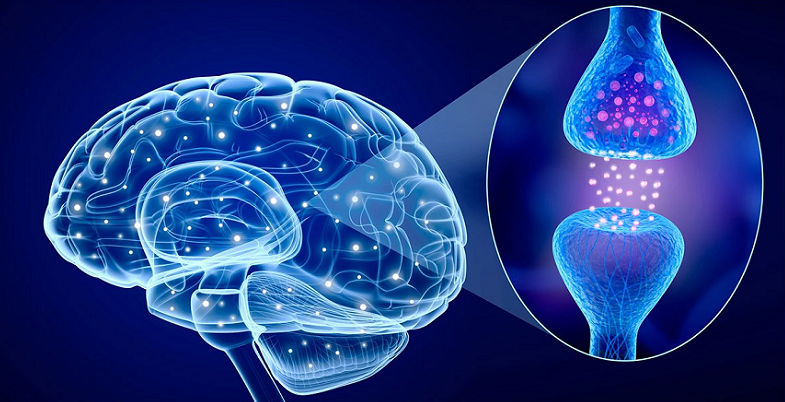
In today’s fast-paced world, the ability to perform at our cognitive best is more critical than ever. But what factors contribute to optimal cognitive performance, and how can we harness them to our advantage? One essential aspect of brain function that often goes overlooked is the delicate balance of neurotransmitters. These chemical messengers play a pivotal role in regulating our thoughts, emotions, and actions. Here we explore the role of neurotransmitter balance in optimal cognitive performance.
Contents
- About Neurotransmitters and Optimal Cognitive Performance
- Key Neurotransmitters Involved in Cognitive Performance
- Factors Affecting Neurotransmitter Balance
- Strategies for Achieving Optimal Neurotransmitter Balance
- Nutritional Supplements That Provide Neurotransmitter Balance for Optimal Cognitive Performance
- Monitoring and Adjusting Neurotransmitter Balance
- References
About Neurotransmitters and Optimal Cognitive Performance
The ability to think clearly, learn effectively, and solve problems efficiently is crucial to success in today’s fast-paced and demanding world. Optimal cognitive performance is not just a valuable asset for academic and professional pursuits but also significantly impacts our overall quality of life.
One critical aspect of brain function, which is often not given its due importance, is the intricate balance of neurotransmitters. These chemical messengers play a crucial role in regulating our thoughts, emotions, and actions, and maintaining their balance is vital for peak cognitive performance.
Neurotransmitters are naturally occurring chemicals that transmit signals between nerve cells, also known as neurons. They help control and modulate various cognitive and physiological functions, including mood, motivation, attention, memory, and learning. The delicate balance between these neurotransmitters is essential for maintaining optimal brain function, and any imbalance can lead to various cognitive, emotional, and behavioral issues.
Key Neurotransmitters Involved in Cognitive Performance
Several neurotransmitters play a crucial role in cognitive performance. Understanding their functions can help us appreciate the significance of maintaining a balance between them.
Dopamine
Dopamine is often referred to as the “feel-good” neurotransmitter. It plays a crucial role in the brain’s reward system, influencing motivation, drive, and the experience of pleasure [1]. Dopamine also affects attention, allowing us to focus on tasks and avoid distractions.
Dopamine is involved in the consolidation of new information and the formation of memories. It helps facilitate learning by reinforcing the neural connections that contribute to the acquisition of new skills and knowledge.
Serotonin
Serotonin is well-known for its role in regulating mood, emotions, and overall well-being. Adequate levels of serotonin are associated with emotional stability, reduced anxiety, and improved resilience to stress [2].
While serotonin is primarily recognized for its impact on mood, it also plays a role in cognitive processes such as learning and memory. Serotonin influences the strength and flexibility of neural connections, which can affect the brain’s ability to process and store new information.
Norepinephrine
Norepinephrine, also known as noradrenaline, contributes to the regulation of attention, alertness, and arousal [3]. It helps maintain focus and facilitates quick thinking and decision-making, particularly in stressful situations.
Norepinephrine plays a role in the stress response and can affect memory consolidation. Moderate levels of norepinephrine can enhance memory formation, while chronically elevated levels due to stress can impair cognitive function and memory.
Acetylcholine
Acetylcholine is a key neurotransmitter involved in learning and memory processes. It is essential for the formation of new memories and the retrieval of stored information [4].
Acetylcholine also influences attention, focus, and decision-making. It contributes to the ability to filter out irrelevant information and prioritize tasks, which is crucial for efficient cognitive performance.
Glutamate and GABA
Glutamate is the primary excitatory neurotransmitter in the brain, promoting neural communication and activity [5]. In contrast, GABA (gamma-aminobutyric acid) is the primary inhibitory neurotransmitter, helping to regulate and dampen neuronal activity.
The balance between glutamate and GABA is critical for optimal cognitive performance. While glutamate facilitates learning and memory processes, excessive activity can be detrimental to cognitive function. GABA helps maintain a healthy balance by inhibiting overactivity and promoting relaxation and focus.

Factors Affecting Neurotransmitter Balance
Maintaining an optimal neurotransmitter balance is essential for peak cognitive performance. However, several factors can impact this balance, including genetics, nutrition, and lifestyle factors.
Genetics
Genetic factors can influence the synthesis, metabolism, and transport of neurotransmitters in our brain. These factors can determine an individual’s predisposition to imbalances in neurotransmitter levels, which may affect cognitive performance.
While genetics play a role in neurotransmitter balance and cognitive function, they do not entirely dictate our cognitive abilities. Environmental factors and lifestyle choices can significantly influence our neurotransmitter levels and cognitive performance, regardless of our genetic predisposition.
Nutrition
The food we consume can directly affect the production and function of neurotransmitters. Certain nutrients, such as amino acids, vitamins, and minerals, are essential for the synthesis and regulation of neurotransmitters. A balanced diet, rich in these nutrients, can support optimal neurotransmitter balance and cognitive function.
Some of the essential nutrients for cognitive performance include amino acids (e.g., tryptophan, tyrosine), vitamins (e.g., B vitamins, vitamin C, vitamin D), and minerals (e.g., magnesium, zinc, iron). Consuming a nutrient-dense diet, rich in whole foods, can provide these essential nutrients and promote neurotransmitter balance.
Lifestyle Factors
Regular physical activity has been shown to have a positive impact on neurotransmitter levels, particularly dopamine, serotonin, and norepinephrine [6]. Exercise can enhance cognitive function by promoting the release of these neurotransmitters, improving mood, focus, and memory.
Sleep is crucial for cognitive performance and overall brain health. During sleep, our brain consolidates memories, repairs neuronal damage, and replenishes neurotransmitter levels. Poor sleep quality or insufficient sleep can disrupt neurotransmitter balance and impair cognitive function.
Chronic stress can lead to imbalances in neurotransmitter levels, particularly cortisol, norepinephrine, and serotonin. Prolonged exposure to stress can negatively affect cognitive performance, memory, and mood. Implementing effective stress management techniques can help maintain neurotransmitter balance and support cognitive function.

Strategies for Achieving Optimal Neurotransmitter Balance
Achieving and maintaining an optimal neurotransmitter balance is crucial for peak cognitive performance. In this section, we will discuss various strategies to support neurotransmitter balance, including diet and supplementation, physical activity, sleep optimization, and stress management.
Diet and Supplementation
A balanced diet rich in whole foods, such as fruits, vegetables, lean proteins, whole grains, and healthy fats, can provide the necessary nutrients for neurotransmitter synthesis and function. Specific foods, such as oily fish, nuts, seeds, leafy greens, and berries, have been shown to support brain health and neurotransmitter balance.
While a balanced diet should be the foundation for optimal neurotransmitter balance, certain supplements can further support cognitive function. Some examples include omega-3 fatty acids, B vitamins, magnesium, and adaptogenic herbs. However, it is essential to consult with a healthcare professional before starting any supplementation regimen.
Physical Activity
Engaging in regular physical activity can positively impact neurotransmitter levels and cognitive function [7]. Aim for at least 150 minutes of moderate-intensity aerobic exercise or 75 minutes of vigorous-intensity aerobic exercise per week, combined with muscle-strengthening activities on two or more days per week.
Exercise promotes the release of neurotransmitters such as dopamine, serotonin, and norepinephrine, which can enhance mood, focus, and memory. Additionally, physical activity can improve overall brain health by increasing blood flow, reducing inflammation, and promoting neuroplasticity.
Sleep Optimization
Quality sleep is crucial for cognitive performance and neurotransmitter balance. During sleep, the brain consolidates memories, repairs neuronal damage, and replenishes neurotransmitter levels. Aim for 7-9 hours of quality sleep per night to support optimal cognitive function.
To enhance sleep quality, establish a consistent sleep schedule, create a sleep-friendly environment, limit exposure to screens and artificial light before bedtime, and incorporate relaxation techniques such as mindfulness or deep breathing exercises.
Stress Management
Chronic stress can disrupt neurotransmitter balance and negatively affect cognitive performance. Implementing effective stress management techniques, such as deep breathing, progressive muscle relaxation, mindfulness, and regular physical activity, can help maintain neurotransmitter balance and support cognitive function.
Mindfulness practices, such as meditation, yoga, and tai chi, can help regulate neurotransmitter levels, improve focus, and enhance overall cognitive performance.
Nutritional Supplements That Provide Neurotransmitter Balance for Optimal Cognitive Performance
Various nutritional supplements have been suggested to support neurotransmitter balance and contribute to optimal cognitive performance. Some supplements that are thought to provide neurotransmitter balance are listed here.
L-tyrosine
L-tyrosine is an amino acid that plays a crucial role in the production of several neurotransmitters, particularly dopamine, norepinephrine, and epinephrine [8]. These neurotransmitters are essential for various cognitive functions such as mood regulation, attention, motivation, and stress response. By supporting the synthesis of these neurotransmitters, L-tyrosine supplementation may help provide neurotransmitter balance for optimal cognitive performance. Here’s how L-tyrosine might contribute to neurotransmitter balance and cognitive performance:
- Precursor to neurotransmitters: L-tyrosine serves as a building block for the synthesis of dopamine, norepinephrine, and epinephrine. Supplementing with L-tyrosine may increase the availability of this precursor, potentially promoting the production of these neurotransmitters and supporting their balance in the brain.
- Stress response: During periods of acute stress, the brain’s demand for neurotransmitters, particularly norepinephrine and dopamine, increases. L-tyrosine supplementation may help support the production of these neurotransmitters during stress, potentially maintaining focus, attention, and cognitive performance in stressful situations.
- Mood and motivation: By supporting dopamine production, L-tyrosine may help regulate mood and motivation. Balanced dopamine levels can promote a positive mood, enhance motivation, and improve overall cognitive performance.
- Cognitive flexibility: L-tyrosine’s role in neurotransmitter production, particularly dopamine, may contribute to cognitive flexibility, which is the ability to adapt and shift between tasks or thoughts. Enhanced cognitive flexibility can lead to improved problem-solving and decision-making skills.
Acetyl-L-carnitine
Acetyl-L-carnitine (ALCAR) is a naturally occurring amino acid derivative that has been suggested to support cognitive function and neurotransmitter balance [9]. ALCAR exhibits several properties that may contribute to its potential benefits for optimal cognitive performance:
- Acetylcholine production: Acetyl-L-carnitine serves as a precursor for the production of acetylcholine, a neurotransmitter that plays a critical role in learning, memory, and attention. By supporting acetylcholine synthesis, ALCAR may help improve memory formation, information processing, and overall cognitive performance.
- Neuroprotection: ALCAR has antioxidant properties, which can help protect brain cells from damage caused by free radicals and oxidative stress. By reducing oxidative damage, ALCAR may contribute to maintaining optimal brain function and cognitive performance.
- Mitochondrial function: ALCAR supports mitochondrial function by facilitating the transport of fatty acids into the mitochondria, where they are used for energy production. Healthy mitochondrial function is crucial for maintaining adequate energy levels in the brain, which can impact cognitive performance.
- Neuroplasticity: ALCAR has been suggested to promote neuroplasticity, which is the brain’s ability to form new neural connections and adapt to new information or experiences. Enhanced neuroplasticity can contribute to improved learning, memory, and cognitive flexibility.
- Anti-inflammatory properties: ALCAR may also exhibit anti-inflammatory properties, helping to reduce inflammation in the brain. Chronic inflammation can negatively impact cognitive function, so reducing inflammation may contribute to improved cognitive performance.
Ginkgo Biloba
Ginkgo biloba, an herbal supplement derived from the leaves of the Ginkgo biloba tree, has long been used in traditional medicine for its potential cognitive-enhancing properties. Several mechanisms have been proposed to explain how Ginkgo biloba might help provide neurotransmitter balance for optimal cognitive performance [10]:
- Increased cerebral blood flow: Ginkgo biloba has been shown to improve blood flow in the brain by promoting vasodilation and reducing blood viscosity. Improved cerebral blood flow can lead to increased oxygen and nutrient delivery to brain cells, supporting overall cognitive function and neurotransmitter balance.
- Neurotransmitter modulation: Ginkgo biloba may have an impact on the levels and activity of various neurotransmitters, including dopamine, serotonin, norepinephrine, and acetylcholine. By modulating neurotransmitter systems, Ginkgo biloba may help maintain their balance and promote optimal cognitive performance.
- Antioxidant properties: Ginkgo biloba contains potent antioxidant compounds, such as flavonoids and terpenoids, that can help protect brain cells from oxidative damage caused by free radicals. By reducing oxidative stress, Ginkgo biloba may support overall brain health and cognitive function.
- Neuroprotection: Ginkgo biloba has been suggested to exhibit neuroprotective properties, which can help protect brain cells from damage induced by factors such as inflammation, excitotoxicity, and ischemia. This neuroprotective effect may contribute to maintaining cognitive performance and neurotransmitter balance.
- Anti-inflammatory effects: Ginkgo biloba may also help reduce inflammation in the brain by inhibiting the production of pro-inflammatory cytokines and other inflammatory mediators. Since chronic inflammation can negatively impact cognitive function, reducing inflammation may contribute to improved cognitive performance.
Bacopa Monnieri
Bacopa monnieri, also known as Brahmi, is an adaptogenic herb that has been used in traditional Ayurvedic medicine to support cognitive function and promote overall brain health. Several mechanisms have been proposed to explain how Bacopa monnieri might help provide neurotransmitter balance for optimal cognitive performance [11]:
- Modulation of neurotransmitter systems: Bacopa monnieri has been suggested to influence the levels and activity of various neurotransmitters, including acetylcholine, dopamine, and serotonin. By modulating these neurotransmitter systems, Bacopa monnieri may help maintain their balance and support cognitive functions like memory, learning, and attention.
- Antioxidant properties: Bacopa monnieri contains potent antioxidant compounds that can help protect brain cells from oxidative damage caused by free radicals. By reducing oxidative stress, Bacopa monnieri may support overall brain health and cognitive function.
- Neuroprotection: Bacopa monnieri exhibits neuroprotective properties that can help shield brain cells from damage induced by factors such as inflammation, excitotoxicity, and ischemia. This neuroprotective effect may contribute to maintaining cognitive performance and neurotransmitter balance.
- Enhancement of synaptic communication: Bacopa monnieri has been shown to enhance synaptic communication by increasing the expression of specific proteins involved in the formation and maintenance of synapses. Improved synaptic communication can contribute to better memory formation and overall cognitive performance.
- Adaptogenic properties: As an adaptogen, Bacopa monnieri may help the body adapt to stress by modulating the production of stress hormones and supporting the stress response system. By promoting a balanced stress response, Bacopa monnieri may indirectly support neurotransmitter balance and cognitive function.

Monitoring and Adjusting Neurotransmitter Balance
Achieving and maintaining optimal neurotransmitter balance for cognitive performance requires consistent monitoring and adjustments based on individual needs and lifestyle factors.
Importance of Monitoring Neurotransmitter Balance
Monitoring neurotransmitter levels can help identify potential imbalances that may be affecting cognitive performance. Early identification of imbalances allows for timely interventions and adjustments to restore balance and support cognitive function.
Monitoring neurotransmitter balance can provide valuable insight into the effectiveness of various strategies, such as dietary modifications, supplementation, exercise, and stress management techniques. This information can be used to refine these strategies and further optimize cognitive performance.
Methods for Monitoring Neurotransmitter Balance
Specialized laboratory tests, such as urinary neurotransmitter testing, can provide an objective measure of neurotransmitter levels [12]. Consult with a healthcare professional to determine the most appropriate testing methods and frequency based on your individual needs.
Regularly assessing cognitive performance through memory tests, attention tasks, or other cognitive assessments can provide insight into the effects of neurotransmitter balance on cognitive function. Self-monitoring of mood and energy levels can help identify potential neurotransmitter imbalances that may be impacting cognitive performance.
Adjusting Strategies to Maintain Optimal Neurotransmitter Balance
Based on monitoring results, dietary modifications may be necessary to support neurotransmitter balance, such as increasing or decreasing the intake of specific nutrients or foods known to affect neurotransmitter levels. Supplementation adjustments: If supplementation is part of the strategy for achieving neurotransmitter balance, monitoring may indicate a need to adjust the type, dosage, or frequency of supplements to better support cognitive function.
Exercise and sleep optimization: Regular monitoring of neurotransmitter balance can help identify whether adjustments to exercise routines or sleep habits are necessary to maintain optimal cognitive performance. Stress management techniques: Monitoring neurotransmitter balance may reveal a need for additional stress management techniques or adjustments to existing practices to better support cognitive function.
References
[1] What Is Dopamine? How Dopamine Drives Our Behavior
[2] Serotonin: What Is It, Function & Levels
[3] How the brain responds to surprising events
[4] Nurturing Neuroplasticity: How to Rewire Your Brain for Better Cognitive Performance
[5] Glutamate: The Primary Excitatory Neurotransmitter
[6] How exercise impacts your brain
[7] Physical Activity Boosts Brain Health
[8] Tyrosine Health Information
[9] Impact of Supplementation and Nutritional Interventions on Pathogenic Processes of Mood Disorders: A Review of the Evidence
[10] Ginkgo Biloba: A Cognitive Enhancer?
[11] Bacopa Monnieri: Improve Memory and Cognitive Performance
[12] Neurotransmitter Testing: What Can It Do For You?

